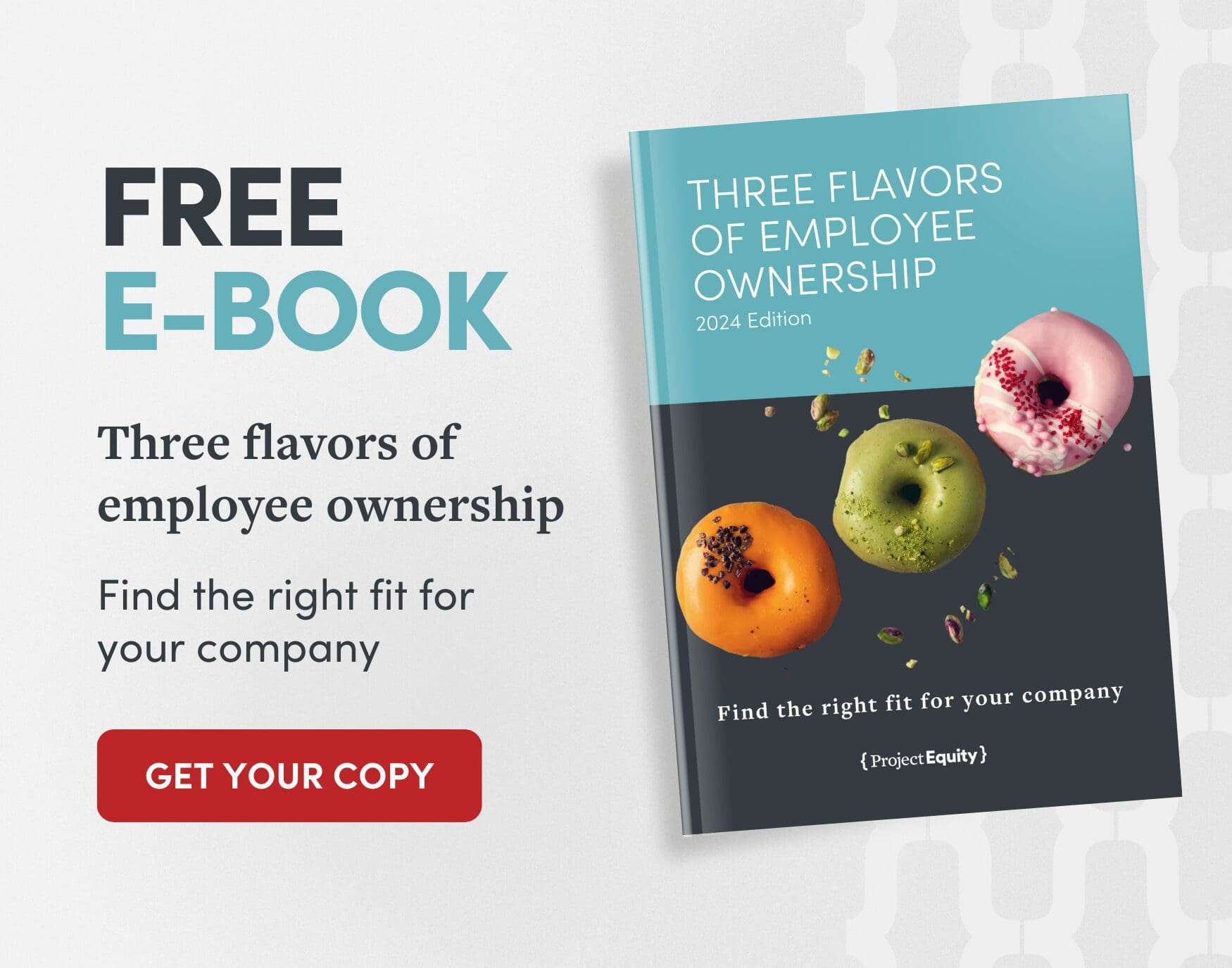California passes Employee Ownership Act
- Hilary Abell
Lessons from an Advocacy Campaign
On September 29, Governor Gavin Newsom signed Senate Bill 1407, the California Employee Ownership Act, into law. When it takes effect in 2023, the Act will make California the second state, after Colorado, to have a dedicated office of employee ownership (EO), or a “hub” as it is called in the California bill. Now, the government of the country’s most populous state, with nearly 12% of the U.S. population, will proactively support what people in California have been doing for more than 150 years–creating businesses that are owned by, and share the wealth with, the people who work there.
“Senate Bill 1407 establishes an Employee Ownership Hub in California’s Governor’s Office of Business and Economic Development (GO-Biz).”
Today, over 100 worker cooperatives and 760 companies with Employee Stock Ownership Plans (ESOPs) operate in California, more than in any other state. While these numbers are modest compared to the state’s economy, they represent a higher concentration of broad-based employee ownership compared to other large states (New York, Florida and Texas, for example, have 50-75% of California’s population but one quarter to one half as many employee-owned companies). With SB 1407, advocates hope to build a foundation for employee-owned companies to become a significant part of California’s economy, and to inspire other states to follow suit.
What is the California Employee Ownership Act?
Senate Bill 1407 establishes an Employee Ownership Hub, led by a Hub Manager, in California’s Governor’s Office of Business and Economic Development (GO-Biz). Its mandate includes:
- Working with state agencies to enhance opportunities and reduce barriers to employee ownership;
- Partnering with diverse stakeholders to educate business owners and employees about the benefits of employee ownership;
- Providing referrals to legal, financial, and technical employee ownership resources and services;
- Developing recommendations on how state-run capital programs can be used to support employee ownership transitions and employee-owned companies; and
- Reporting to the legislature.
The law focuses on helping established businesses transition to employee ownership, while also supporting “growth of employee-owned enterprises” via startups or assistance to existing employee-owned companies. Notably, Hub programming will address both worker cooperatives and ESOPs, as well as other forms of broad-based employee ownership.
Two grant programs removed from final bill
SB 1407 began with a bigger vision, one that its sponsors still plan to pursue in full. Worker-Owned Recovery California (WORC), Project Equity and Ownership America drafted the bill to include two grant programs that would (1) fund awareness raising and education about employee ownership, and (2) make affordable technical assistance (TA) more widely available to businesses across the state. Small TA grants have proved successful in Colorado and in several California cities, particularly grants that help companies finance feasibility studies to determine if employee ownership is right for them. The proposed California grant programs, however, required a larger budget that was not politically feasible at the time. Securing funding for robust statewide programming through these grants is the coalition’s priority for the upcoming budget cycle.
A multi-year push leads to a bill becoming law in nine months
With the exception of passing a worker cooperative statute in 2015 and a new demonstration program for immigrant cooperatives, California’s state government (like most states) has been a neutral bystander when it comes to worker ownership.
When the COVID-19 pandemic hit, however, seven organizations came together to promote worker ownership as a strategy for an equitable economic recovery. In April 2020, they formed WORC, and, later that year, pooled their funds to hire a lobbyist in Sacramento. With the lobbyist’s connections and guidance, coalition members met with dozens of state leaders (legislative, committee and agency staff) in 2020 and 2021 while advancing two separate budget requests. Though the budget requests did not pass, the relationship building was key.
In January 2022, some of WORC’s core members met with aides to Senator Josh Becker, one of nine legislative co-sponsors of their prior budget request. The meeting came on the heels of a meeting between the Senator’s office and ESOP advocates and led to all parties coming together around the idea of introducing an employee ownership bill. This set off a nine-month effort of drafting bill language, testifying at committee hearings, and engaging legislators and grassroots supporters. At each stage, the bill received unanimous bipartisan support.
What we learned
The passage of SB 1407 holds some key lessons, on which employee ownership advocates in other states can build:
- A diverse coalition: The organizations helping to craft the bill represented diverse constituencies and voices, including nonprofit EO advocates and TA providers, a major labor union, and business owners with stories of successful transitions. In addition, local government leaders, small business, social enterprise and sustainability advocates, and community-based organizations backed the bill (a joint sign-on letter had 150 local, state, and national groups and hundreds of individuals in support). But more than anything, having a formal coalition was key.
- Long-term vision: The WORC coalition’s vision of ”an economically and racially equitable California powered by broad-based worker ownership” drove the decision to invest in a legislative effort. The EO Hub realizes the medium-term goal of embedding employee ownership into the state’s approach to economic development.
- Big tent approach: Involving long-time leaders of both the worker cooperative and ESOP communities ensured a bill with wide appeal across the political aisle and across the state and meant that we could identify employee-owned companies in every legislator’s district.
- Advocacy Infrastructure: WORC’s core members created a strong advocacy infrastructure: many organizations actively working together; a mission-aligned lobbyist; and a staff person (SEIU-UHW not only provided political heft but also lent out a full-time employee to act as WORC’s coalition coordinator).
- Strategic relationship building: The sponsors of SB 1407 engaged in constructive conversations with key actors who could potentially make or break the bill, including legislative committee consultants, the California Labor Federation, and GO-Biz itself.
- Minimal budget implications: Cutting the proposed grant programs from SB 1407 made the popular legislation much easier to pass. But without funding for outreach and technical assistance, the EO Hub risks falling short of its mandate. The sponsors of SB 1407 are committed to a new funding campaign going forward.
California advocates have a strong foundation to build on, having educated legislators and built relationships across the state, the EO movement, and the political aisle. We are eager to support California’s Employee Ownership Hub in using its mandate—education, referrals, technical assistance, reducing regulatory or informational barriers—to grow employee ownership statewide and inspire other states to do the same. If the SB 1407 campaign is any indication, employee ownership advocates may find fertile ground for employee ownership policy in many states. Let’s see what we can sow and harvest by working together.
About the author
is Co-founder and Chief Policy & Impact Officer at Project Equity, and a founding steering committee member of the Worker-Owned Recovery California coalition.

Article details
Audience
Topic


